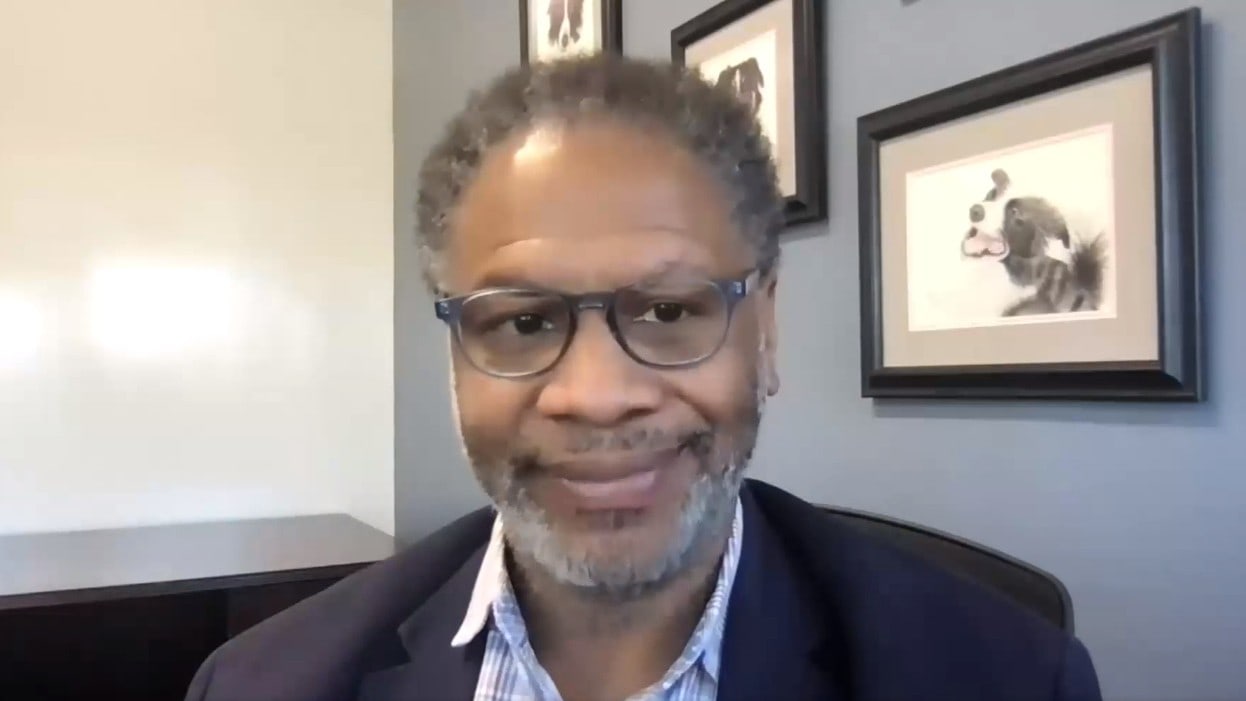UAMS Faculty, Staff Members Recognized for Excellence in Mentoring
| The University of Arkansas for Medical Sciences (UAMS) honored nine faculty and staff members during a Jan. 17 ceremony that acknowledged their commitment to the mentorship of colleagues and students.
The third annual Excellence in Mentoring Awards shifted to a virtual format because of inclement weather in central Arkansas. Cam Patterson, M.D., MBA, UAMS chancellor and CEO of UAMS Health, recorded a video in which he encouraged members of Team UAMS to look for opportunities to serve as mentors or mentees.
“As an academic health system, UAMS understands the important role of mentorship,” he said.
Brian Gittens, Ed.D., MPA, vice chancellor of the UAMS Division for Diversity, Equity and Inclusion (DDEI), said mentors provide others with guidance, support and insight.
“Because they are passionate about helping others, they help build confidence and self-esteem,” he said. “Because they are great communicators, they know how to speak and when to listen. Because they are masterful at recognizing the talents and skills of others, they can guide mentees in discovering the right direction for them.
“Mentors give more than advice; they give of themselves because they truly care about their mentees,” he said.
For the first time, the Excellence in Mentoring Awards ceremony was held in conjunction with the Winthrop P. Rockefeller Cancer Institute’s Grand Rounds leadership series. Guest speaker Robert A. Winn, M.D., director and Lipman chair in oncology at Virginia Commonwealth University’s Massey Comprehensive Cancer Center in Richmond, Virginia, gave a presentation titled, “The Importance of Defining Your North Star in Cancer Research.”
Much of Winn’s work focuses on disparities in cancer incidence and treatment. He cited the example of prostate cancer, a disease that Black men face at higher rates and with poorer outcomes than white men do. While many people once viewed these disparities as the result of biological factors, researchers have found that providing equal access to care can “in most cases mitigate, if not eradicate, those differences,” he said.
Winn said those findings captured his attention, but it was his work on lung cancer disparities that fostered a love for research. After reading about a study that found no significant differences in cancer-driving mutations among Black and white patients, he began to expand his thinking about the factors that affect lung cancer development and outcomes.
“This is where I started developing the idea that it wasn’t just DNA that was important, that maybe it was ‘ZNA’ — a person’s ZIP code and neighborhood of association.”
One of his resulting studies examined the impact of social drivers on biological health, with a goal of reducing racial disparities in lung cancer outcomes. Winn and his team looked at Chicago’s 50 political wards and discovered that Black men in areas with high rates of violence not only had elevated levels of cortisol, a hormone that helps the body respond to stress, but they also showed genetic changes long before they displayed any evidence of cancer.
This finding could help researchers develop context-specific risk profiles to improve early detection of lung cancer, he said.
“There’s an important refinement that a person’s place and space affects their biology and outcomes,” he said.
Winn also spoke about the many mentors who have helped him throughout his career, noting that their guidance and support led him to a field of study that brings him joy.
“I wouldn’t be here if people didn’t see things in me that I didn’t see in myself,” he said.
The Excellence in Mentoring Awards were organized through a collaborative effort involving DDEI, the UAMS College of Medicine, the UAMS Graduate School and the Winthrop P. Rockefeller Cancer Institute. This year’s ceremony featured the introduction of the Eddie Reed Excellence in Mentoring Award, an honor that recognizes outstanding mentorship in cancer research.
The award was established in memory of Eddie Reed, M.D., a nationally renowned cancer researcher and oncologist who died in 2014. Michael Birrer, M.D., Ph.D., director of the Winthrop P. Rockefeller Cancer Institute and UAMS vice chancellor, said Reed recognized the vital role of mentorship in the advancement of cancer research and clinical care.
“Eddie Reed was very focused on mentorship, and he helped bring a whole generation of younger individuals into the field of oncology,” Birrer said.
UAMS received 32 nominations for nine awards honoring faculty and staff members who demonstrate a passion for mentorship and for helping others reach their goals. The awards were announced by Gwendolyn Bryant-Smith, M.D., associate director for diversity, equity and inclusion in the Winthrop P. Rockefeller Cancer Institute; Gloria Richard-Davis, M.D., MBA, executive director of DDEI; and Sean Taverna, Ph.D., dean of the UAMS Graduate School.
The 2024 Excellence in Mentoring Award recipients are:
Eddie Reed Excellence in Mentoring Award
Antiño Allen, Ph.D., associate director of diversity initiatives at the UAMS Translational Research Institute and professor in the UAMS College of Pharmacy
Diversity Faculty Excellence in Mentoring Award
Eva Woodward, Ph.D., assistant professor in the UAMS College of Medicine’s Department of Psychiatry
Women Faculty Excellence in Mentoring Award
Luann Racher, M.D., associate professor in the College of Medicine’s Department of Obstetrics and Gynecology
Clinical Emerging Faculty Excellence in Mentoring Award
Lauren Gibson-Oliver, M.D., MBA, family medicine physician at the UAMS Health Family Medical Center in Little Rock
Clinical Legend Faculty Excellence in Mentoring Award
Prasad Padala, M.D., professor in the College of Medicine’s Department of Psychiatry and Department of Geriatrics
Clinical and Research Staff Excellence in Mentoring Award
Oleksandra Pavliv, research assistant in the College of Medicine’s Department of Pediatrics
Administration and Education Staff Excellence in Mentoring Award
Sharanda Williams, assistant dean for student affairs in the College of Medicine
Research Emerging Faculty Excellence in Mentoring Award
Clare Brown, Ph.D., MPH, assistant professor in the Fay W. Boozman College of Public Health
Research Legend Faculty Excellence in Mentoring Award
Jerry Ware, Ph.D., professor in the College of Medicine’s Department of Physiology and Cell Biology
